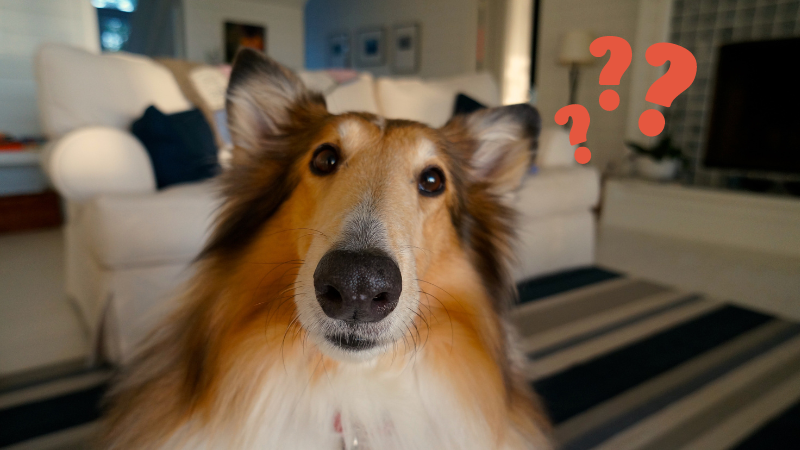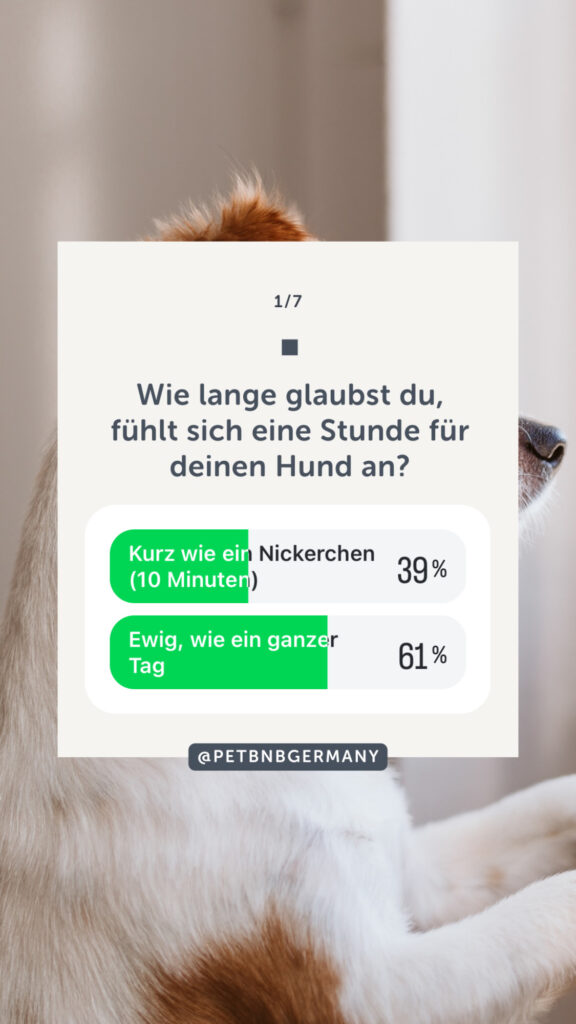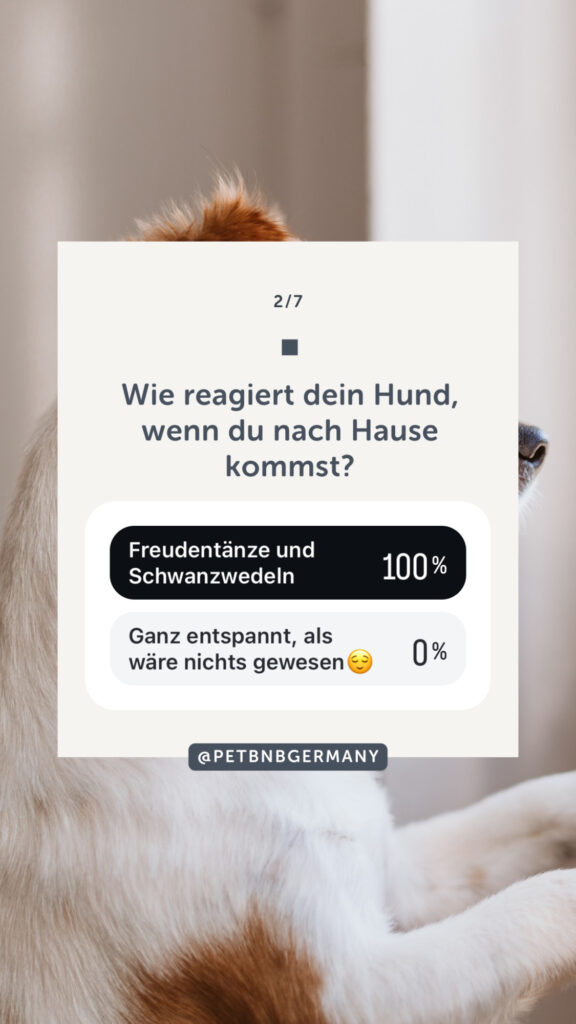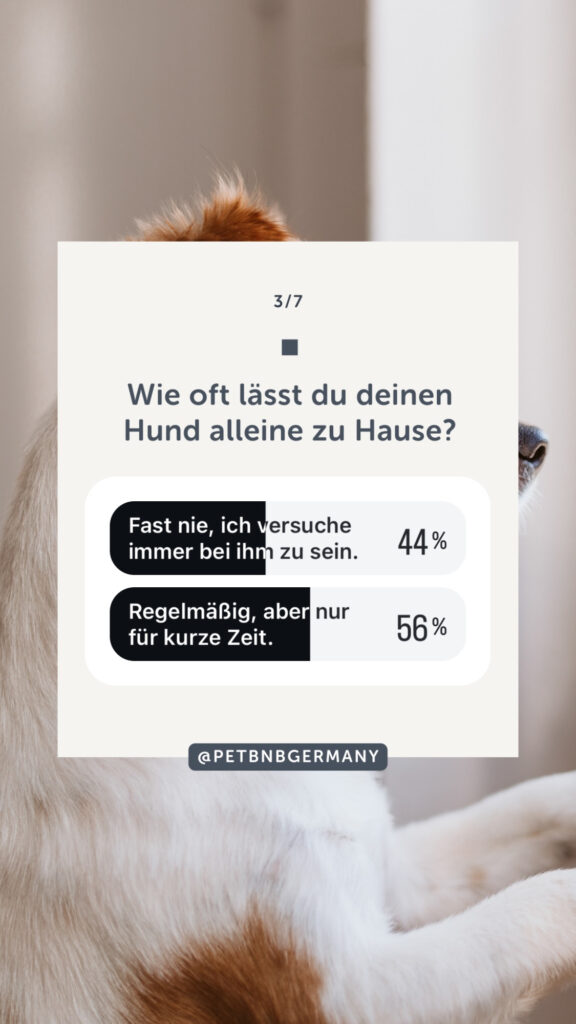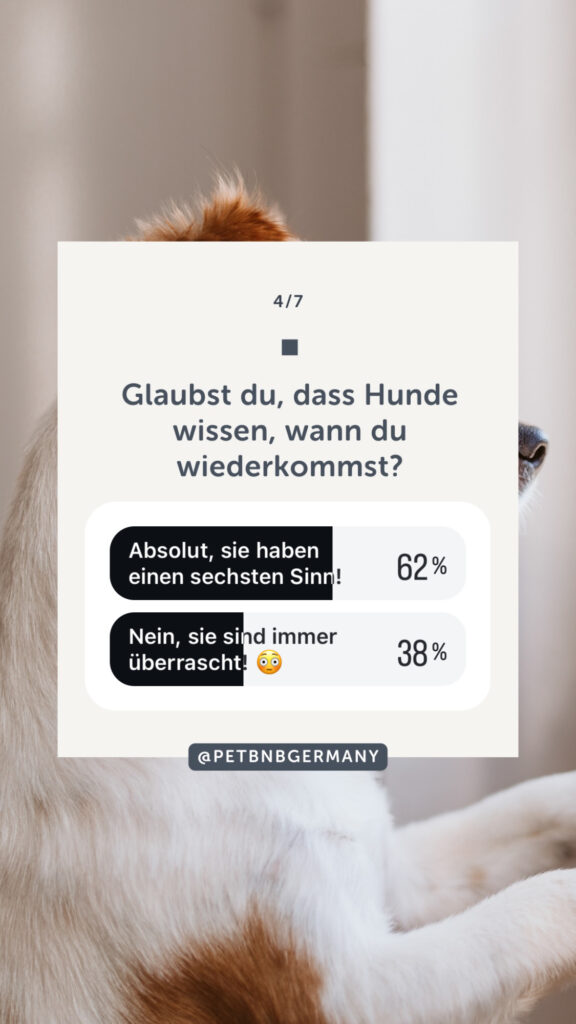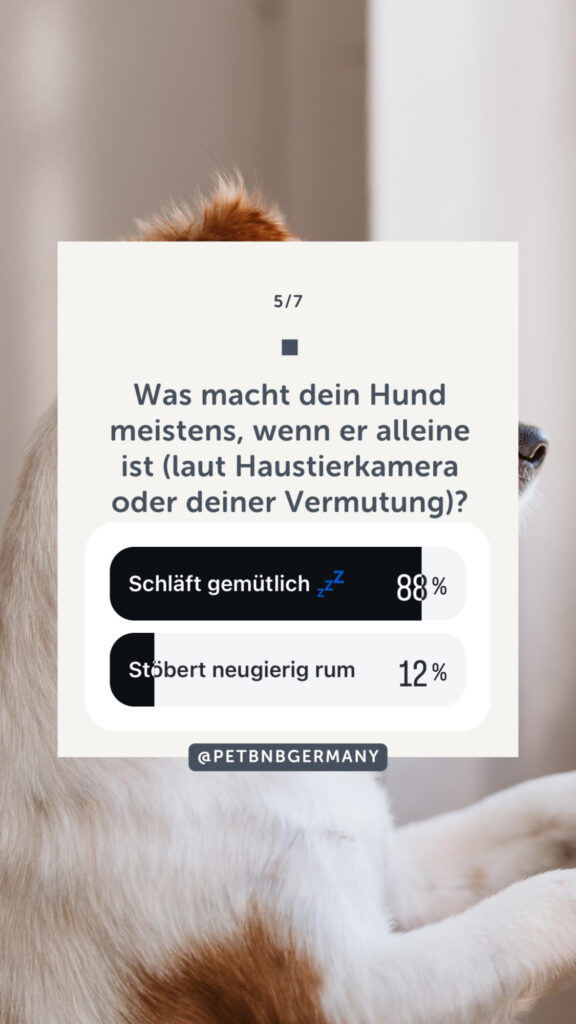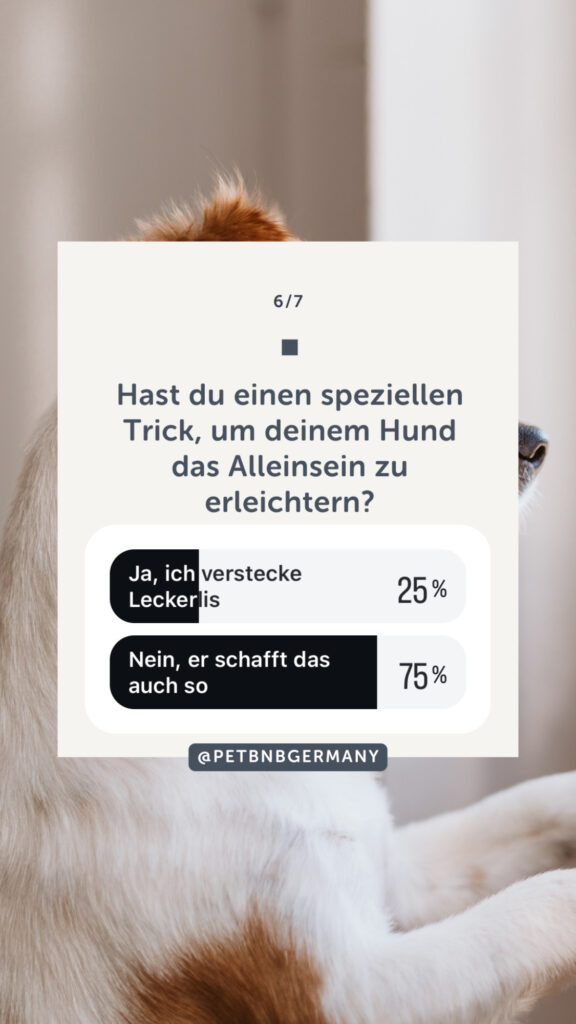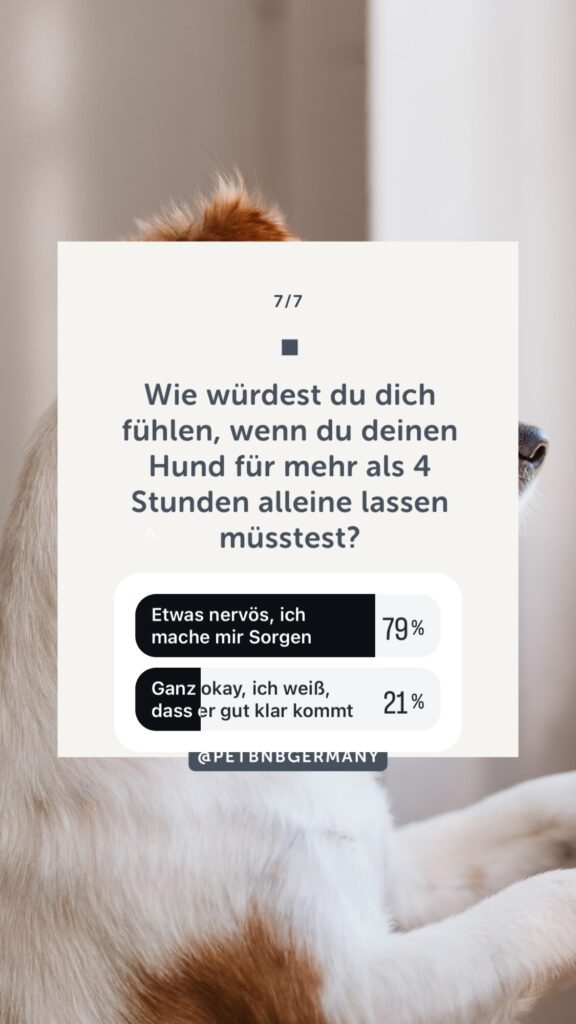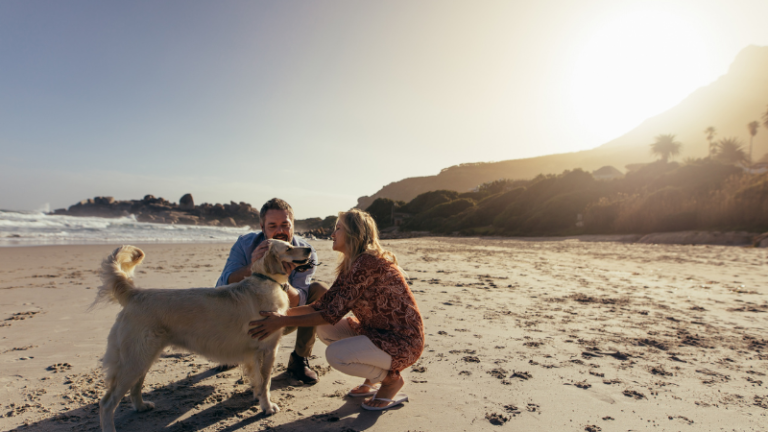Thank you to everyone who participated in our survey on the "sense of time in dogs" and "leaving dogs alone." Your answers have provided us with fascinating insights into the behavior of our furry friends. In this article, we take a closer look at the survey results and connect them with scientific findings to better understand how dogs perceive time and what we can do to make it easier for them to handle being alone.
How Long Does an Hour Feel to a Dog?
Scientific Perspective: Dogs do not have the same sense of time as humans, but they do possess a biological clock that regulates their circadian rhythm. They respond to routines and changes in their daily schedule, which helps them recognize time intervals. Studies have shown that dogs who are fed or walked at the same times every day can accurately anticipate these moments.
Dogs' Reactions When Their Owners Come Home
How Often and How Long Can Dogs Be Left Alone?
Experts recommend that adult dogs should not be left alone for more than 4-6 hours, while puppies should be left alone for a maximum of 1-2 hours. Longer periods can lead to stress and behavioral problems, especially in dogs prone to separation anxiety.
Related Topic: Can I leave my dog alone for 8 hours?
Can Dogs Anticipate Their Owners' Return?
Scientific Facts: Dogs have an incredible sense for routines and can detect changes in their surroundings through smells and sounds, helping them gauge the timing of their owner's return. Research suggests that dogs may even use the strength of a scent to determine how long their owner has been gone.
What Does Your Dog Usually Do When They Are Alone (According to Your Pet Camera or Your Assumptions)?
Scientifically-Based Tips: Many dogs spend most of their time alone resting or sleeping to conserve energy. Research indicates that dogs tend to remain calm in their owner's absence if they are well-exercised and relaxed. However, dogs suffering from separation anxiety often exhibit stress-related behaviors such as restlessness, whining, or destructive tendencies.
Tips and Tricks to Help Dogs Handle Being Alone
How Would You Feel If You Had to Leave Your Dog Alone for More Than 4 Hours?
Scientific Explanation: Many dog owners experience guilt or worry when they have to leave their dogs alone for extended periods. These feelings are not unfounded, as studies indicate that dogs can indeed suffer emotionally when isolated for too long. It’s important to find a balance that meets both your dog's needs and the demands of your daily life.
Are You Away for More Than 4 Hours? Consider hiring a dog sitter who can take your dog to daycare and provide proper care. Check out the best options near you: Dog daycare in top cities
Want to Join Our Next Survey? Follow us on Instagram at @petbnbgermany to stay updated and participate!


